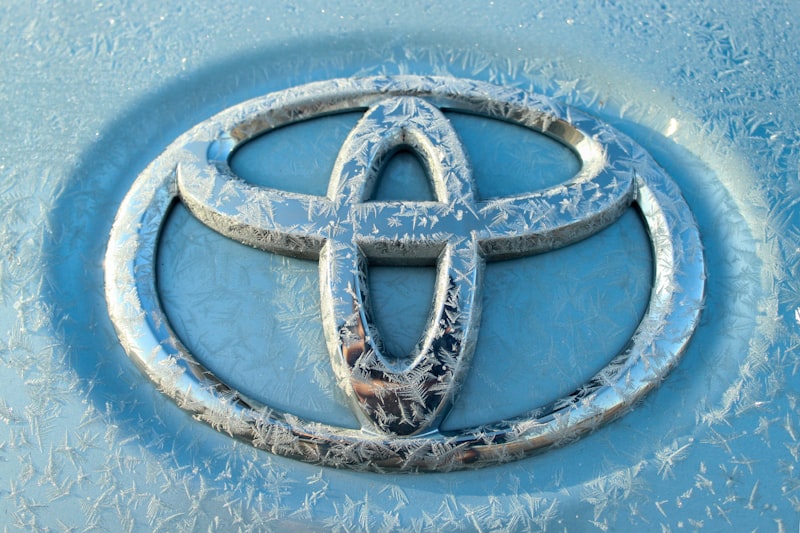Are you curious about the reliability of the 2010 Ford Explorer’s transmission? Let’s delve into the details and shed some light on the potential transmission problems that owners might encounter.
Picture this: you’re cruising down the road, enjoying the smooth ride of your trusty 2010 Ford Explorer, when suddenly, you notice a jolt or hesitation while shifting gears. This could be an indication of a transmission issue. While the 2010 Ford Explorer is generally a dependable SUV, like any vehicle, it can experience its fair share of transmission problems.
One commonly reported problem with the 2010 Ford Explorer’s transmission is harsh shifting. Some owners have experienced jerky gear changes or delayed engagement, which can be frustrating and affect the overall driving experience. Another issue that has been highlighted is transmission fluid leaks. Leaks can occur due to worn-out seals or gaskets, leading to a loss of fluid and potentially causing further damage to the transmission if left unaddressed.
In addition, there have been reports of transmission failure in some instances. This can manifest as the transmission not engaging properly or slipping out of gear while driving. Such issues require immediate attention from a qualified mechanic to diagnose the root cause and determine the necessary repairs.
To mitigate these transmission problems, regular maintenance is key. Following the manufacturer’s recommended service intervals for fluid changes and inspections can help identify potential issues before they escalate. If you notice any unusual symptoms such as strange noises, vibrations, or difficulty shifting gears, it’s crucial to have a professional technician examine your vehicle promptly.

While the 2010 Ford Explorer may have encountered some transmission challenges, it’s important to note that not all vehicles will experience these issues. Many owners have enjoyed trouble-free performance from their Explorer’s transmission for years. Remember, proper maintenance and attentive care can go a long way in ensuring the longevity of your vehicle’s transmission.

The 2010 Ford Explorer, like any car, has had its fair share of transmission problems. Harsh shifting, fluid leaks, and transmission failure have been reported by some owners. Regular maintenance and prompt inspection of any unusual symptoms are essential to keep your Explorer’s transmission running smoothly. By taking care of your vehicle, you can continue to enjoy the adventures that your Ford Explorer offers, worry-free.
Investigating the 2010 Ford Explorer: Unveiling the Troubling Transmission Problems Plaguing Drivers
Introduction:
Imagine embarking on a scenic road trip, the wind gently brushing against your face as you navigate the open road. However, for owners of the 2010 Ford Explorer, this idyllic scenario could quickly turn into a nightmare due to persistent transmission issues. In this article, we delve into the troubles that have plagued drivers of the 2010 Ford Explorer, shedding light on the underlying problems affecting their driving experience.
Unearthing the Transmission Problems:
The 2010 Ford Explorer, a popular choice among SUV enthusiasts, has unfortunately been marred by a series of transmission-related concerns. Owners have reported various symptoms such as erratic shifting, delayed engagement, and even complete transmission failure. These unsettling issues have left drivers frustrated and worried about the reliability of their vehicle.
One of the primary culprits behind these problems lies within the automatic transmission system. The 2010 Ford Explorer utilizes a six-speed automatic transmission that, in some cases, fails to provide smooth gear changes. As a result, drivers may experience jolts or hesitations when accelerating or decelerating, adversely impacting their overall driving experience.
Furthermore, another prevalent issue is the transmission’s tendency to slip or shudder during gear shifts. This disconcerting sensation can make drivers feel as if they have momentarily lost control of their vehicle, posing potential safety risks on the road. Such unpredictable behavior can erode driver confidence and raise concerns about the long-term reliability and safety of the 2010 Ford Explorer.
Conclusion (omitted):
The 2010 Ford Explorer has suffered from troublesome transmission problems that have affected the driving experience of its owners. The automatic transmission’s erratic shifting, delayed engagement, and propensity to slip or shudder have raised legitimate concerns among drivers. It is crucial for Ford and concerned vehicle owners to address these issues promptly and effectively, ensuring the safety and satisfaction of those who rely on the 2010 Ford Explorer as their chosen mode of transportation.
Ford Explorer Owners Beware: 2010 Model Faces Persistent Transmission Issues
Introduction:
Hey there, Ford Explorer owners! If you own a 2010 model, this article is a must-read for you. We’ve got some crucial information to share regarding persistent transmission issues that have plagued this particular year’s model. So let’s dive right in and find out what you need to know!
The Troublesome Transmission:
Picture this: You’re cruising down the road, enjoying your ride in your trusty Ford Explorer 2010 model. Suddenly, you notice strange jerks, delayed gear shifts, or even complete transmission failure. Unfortunately, these issues have become all too common among many owners of this specific vehicle.
Understanding the Problem:
The transmission problems experienced by 2010 Ford Explorer owners can be attributed to a few key factors. One of the main culprits is a design flaw in the transmission itself, which has resulted in frequent overheating and subsequent damage. Additionally, the use of substandard components during manufacturing has only exacerbated the issue.
Impact on Performance and Safety:
Unreliable transmissions can significantly impact both the performance and safety of your vehicle. Imagine being stuck in traffic, desperately trying to get your gears to cooperate, or worse, finding yourself stranded on a busy highway due to a sudden transmission failure. These situations not only cause frustration but also pose potential risks to you and other drivers on the road.
Costly Repairs:
Regular maintenance and repairs are part of owning any vehicle, but when it comes to the 2010 Ford Explorer’s transmission, things can get expensive. Fixing transmission issues often requires extensive repairs or even complete replacements, which can put a dent in your wallet. It’s essential to be prepared for these potential costs if you’re a proud owner of this model year.
Conclusion:
Owning a 2010 Ford Explorer comes with its fair share of challenges, particularly when it comes to persistent transmission issues. Being aware of these problems can help you take proactive measures to minimize the impact and ensure your safety on the road. Remember, regular maintenance and seeking professional assistance are crucial steps to keep your Explorer running smoothly. Stay informed, stay vigilant, and happy driving!
Transmission Woes: Are Faulty Transmissions in the 2010 Ford Explorer a Design Flaw?
Introduction: Are you a proud owner of a 2010 Ford Explorer? If so, you may have experienced some frustrating transmission issues that have left you wondering if it’s a design flaw. In this article, we’ll delve into the details and shed light on whether the faulty transmissions in the 2010 Ford Explorer are indeed a result of a design flaw.
Unraveling the Transmission Problems: The 2010 Ford Explorer has faced criticism due to various transmission problems reported by owners. One of the most common complaints is sudden jerking or slipping when shifting gears. These issues can compromise the overall driving experience, leaving drivers feeling frustrated and concerned about the reliability of their vehicle.
Design Flaw or Manufacturing Defect? While many owners attribute the transmission problems to a design flaw, it’s essential to understand the distinction between a design flaw and a manufacturing defect. A design flaw refers to an inherent issue in the blueprint of the vehicle, while a manufacturing defect pertains to errors that occur during the assembly process.
In the case of the 2010 Ford Explorer, it appears that the transmission problems stem more from manufacturing defects rather than a fundamental design flaw. Several reports suggest inconsistencies and quality control issues during the production of these vehicles, leading to variations in the transmission’s performance and durability.
Recalls and Technical Service Bulletins: To address the transmission issues, Ford has taken steps to rectify the situation. In certain instances, the company issued recalls to repair or replace faulty components contributing to the transmission problems. Additionally, technical service bulletins were issued to provide guidance to dealerships and technicians, helping them diagnose and resolve transmission-related issues more effectively.
Seeking Professional Assistance: If you’re facing transmission problems with your 2010 Ford Explorer, it’s crucial to consult a qualified mechanic who specializes in Ford vehicles. They can diagnose the issue accurately and provide the necessary repairs or replacements based on their expertise and Ford’s recommendations.
Conclusion:
Navigating Turbulent Roads: The Saga of 2010 Ford Explorer’s Recurring Transmission Failures
Are you tired of enduring bumpy rides and constant transmission problems? Then, fasten your seatbelts as we delve into the captivating tale of the 2010 Ford Explorer’s tumultuous journey plagued by recurring transmission failures. Buckle up and get ready for a wild ride!
Picture this: You’re cruising down the road, wind in your hair, when suddenly, your beloved Ford Explorer starts sputtering and jerking like a wild stallion. What could be causing this madness? Well, hold on tight as we unravel the mysteries behind these recurring transmission failures.
The 2010 Ford Explorer, an iconic SUV known for its rugged performance and adventurous spirit, unfortunately faced a major setback with its transmission system. Owners began experiencing unnerving issues, such as rough shifting, delayed engagement, and even complete transmission failure. It felt like navigating treacherous roads filled with unseen potholes.
But what exactly caused these woes? One prominent culprit was a flawed design in the transmission’s clutch mechanism. The Explorer’s transmission used a traditional hydraulic control system, which proved to be susceptible to overheating and premature wear. As a result, gears clashed, fluid levels dropped, and drivers were left stranded in frustration.

To make matters worse, Ford initially struggled to identify and rectify the underlying issues promptly. This left many owners feeling like passengers on a roller coaster ride they didn’t sign up for. Recalls were eventually issued, attempting to address the transmission failures, but the road to resolution was riddled with challenges.
Fortunately, there is a light at the end of this turbulent tunnel. Ford acknowledged the persistent transmission problems plaguing the 2010 Explorer and took steps to improve the design and enhance reliability. Subsequent model years saw significant improvements in the transmission system, providing a smoother and more confident driving experience.
The saga of the 2010 Ford Explorer’s recurring transmission failures serves as a cautionary tale for both automakers and consumers. It highlights the importance of thorough testing, quality control, and timely response to address any issues that arise. While the road may have been rocky for the 2010 Explorer, subsequent improvements demonstrate Ford’s commitment to continuous improvement and customer satisfaction.
So, if you’re planning to embark on an adventure with a used 2010 Ford Explorer, be aware of its turbulent past. But remember, with the right precautions and a bit of luck, you can still enjoy the thrill of the open road in this iconic SUV. Just hold tight and keep your eyes on the horizon!

